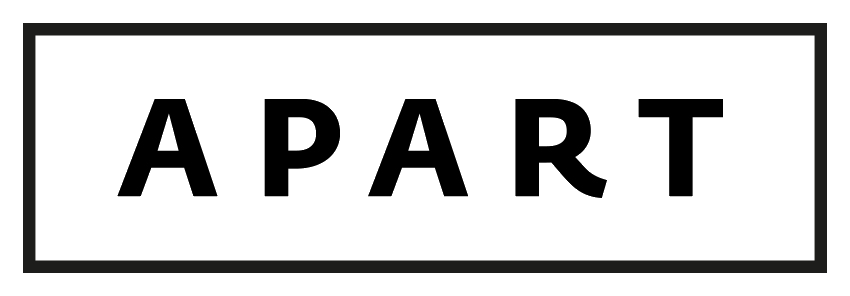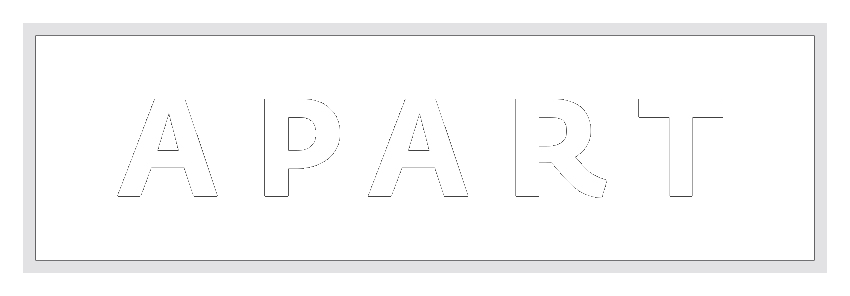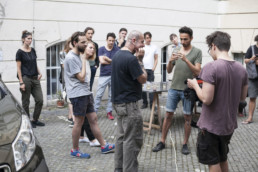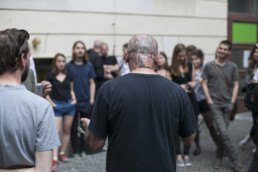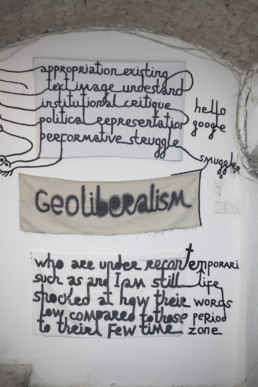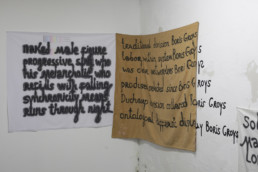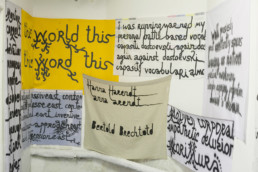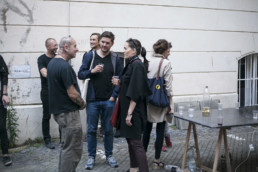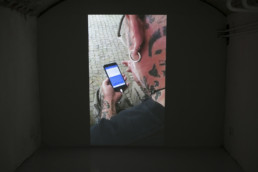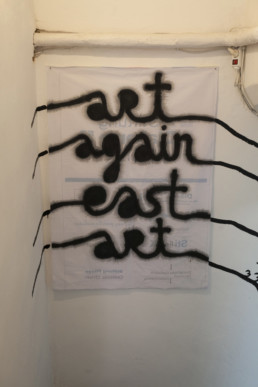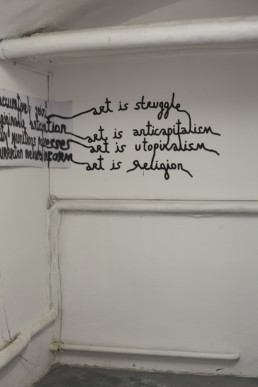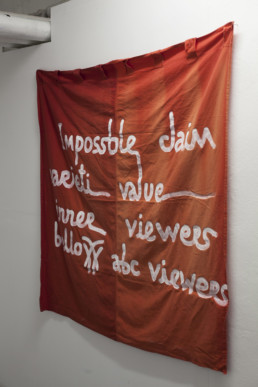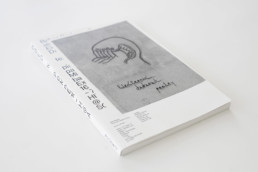Hviezdoslavovo nám. 18, Bratislava (backyard of AFAD)
The concept of Babi Badalov´s exhibition comes from his personal need to resist the current state of affairs. For the exhibition at gallery HIT, Babi decided to work with technology of predictive writing. He understands this technology as a dadaist negation of the present time. The integral part of the opening will be a performance, which will create a connection between predictive writing and the author himself.
The essential material of Babi’s work is language. He is interested in its limits, its ability to isolate the individual from the rest of the society. Through the medium of language, he is contemplating current geo-political situation, relating it to his personal experiences. His migration through countries of former Soviet Union, the United States of America, Europe, Asia and the Middle East are preserved in his drawings, collages and ornamental poetry, in which cultural, historical and ideological overlapping of our globalized world can be seen and read.
Babi Badalov, born in Lerik ( Azerbaijan), lives and works in Paris. He exhibitied for example at Tensta Konsthall (Sweden), MUSAC – Museum of Contemporary Art (Spain), Palais de Tokyo (France), Kunstraum Munich (Germany), The Museum of Contemporary Art, Krakow (Poland), Kunstmuseum Bern (Switzerland), Tranzitdisplay (Czech republic), Erarta Museum of Contemporary Art, St. Petersburg (Russia), New Museum, New York (USA), Museum of Contemporary Art Antwerp (Belgium), MANIFESTA 8, 11th Gwangju Biennale, 6th Moscow Biennale, 15 th Jakarta Biennale, 54 th Venice Biennale, 4th International Baku Biennale.
What is a human being is if he is not a citizen? What are his rights at the moment in which it is not possible to characterize them as rights of a citizen of state ?
Human rights. Fiction. Our hallucination. The world found itself in ruins of human rights the moment it faced a man who lost everything else except for the pure fact of being a man.
We perceive the rules of language and Declaration of Rights from 1789 as immutable meta-rules and values, which bound us to respect them instead of thinking about them in a context of our present days towards a better future in order to reflect our modern world in relation to our needs.
Mladen Stilinović told us more than 20 years ago : AN ARTIST WHO CANNOT SPEAK ENGLISH IS NO ARTIST. Today we could add : AN ARTIST, A CURATOR, A GALLERY INTERN WHO CANNOT SPEAK ENGLISH IS NO ARTIST, NO CURATOR, NO GALLERY INTERN.
If in the contemporary world an artist who doesn’t speak English is not an artist and if a man who is not a citizen, doesn’t want to be or can’t be naturalized or sent back to his homeland, lost all his rights and doesn’t want to conform to the new national identity is not a human being, then who is Babi Badalov ?
Anomaly
Deviation
Divergency
Azimuth
Human
Future
Some people wish he was, as Babi Badalov writes, just their „hallucination“.
In the situationist dictionary, Mustapha Khayati writes that the language is the house of power, the refuge of its violence. If the political power restrains from using physical violence, it relies on language to guide its order. Each new interpretation authorities call misinterpretation and dictionary is the guardian of meaning.
For situationists, the critique of predominant language became permanent new revolutionary theory.
Babi Badalov is a poet, an artist, which disposes language of its status of exclusive commodity and turns it to a gift, to a theft, to an excrement, to waste. Using exclusively found objects on which he notes down his orna-mental poetry, he disposes language of its aura of holiness and glorification.
By means of his visual poetry, he creates a language, which is not an objective reflection of the present times, but which tries to speak the truth to its power. He is an intellectual. A person, who works from exile, from periphery, marginally. He is not a professional in the selected field, but rather an uninvited „outsider“, who unlike an „insider“, does not follow his individual interests, who breaks the limits of human thinking. He is powered by a belief that nothing is given that there is not only one truth and everything is allowed.
He is a prisoner of language and at the same time the only one who can see its bars and is challenged by its totalitarian order on a daily basis.
Contemporary art world is the world translated to English.
As the status of a refugee is always considered a temporary state, which leads either to naturalization or repatriation likewise is the non-acquaintance of English language deemed temporary.
In his status of a refugee, Babi Badalov calls into question the unity of holy trinity of state/ nation/ territory and touches what nation considers its own – its language. He is a thief of a language. If all departures from the normative/ totalitarian/ hegemonial/ official grammar are its deviation, then he makes the language deviated.
Giorgio Agamben wrote that refugee is breaking up the identity between man and citizen, between nativity and nationality. By his existence he threatens the basis of national states, in which limitations growing number of people can no longer be represented and casts doubt on the original illusion of their sovereignty.
As International Art English, defined as an amateurish English used in art press releases, is a space of conflict, fight and controversy, diversion of language and doubting of its sovereignty so is the category of a refugee the one through which we can perceive forms and limitations of future political community.
International Art English, which has become a sort of universal language of communication between artists, curators, institutions and international public and without its knowledge it became almost impossible to create, which has the potential to unite people and alienate them at the same time, is the house of power, a tool of oppression and exploitation.
By means of his short disruptive impulses in the authoritative world of grammar and inviolability of language syntax he outlines future publics outside of our territorial and class models.
For this exhibition he will find himself in a dialogue with software. As a sustainer of Dadaist tradition, he applies principles of dada creation to the technology of predictive writing. The language, with which the algorithm of predictive writing manipulates, is based on the ability to predict what his user will say next, based on what has been previously inserted into it. He is aware of the dominance of English language, which has always been the tool of the empire and whose spreading is currently accelerated by technological progress. However, he does not radically rejects its dominance nor does he negate it, but he understands it as an offering of the room for confrontation, a space where he can insert absurdity into otherwise rational algorithm.
Contrary to the software, Babi Badalov is not trying to find a logical system in absurdity, but he allows himself to stay in chaos, in not-knowing and admits the impossibility of predicting the contingency and creative thinking. He is not trying to find recourses. For this exhibition, in terms of his performance, he finds himself in a dialogue with software. In a dialogue, in which human and machine don’t understand each other, because they can not (not yet).
Kristína Országhová
